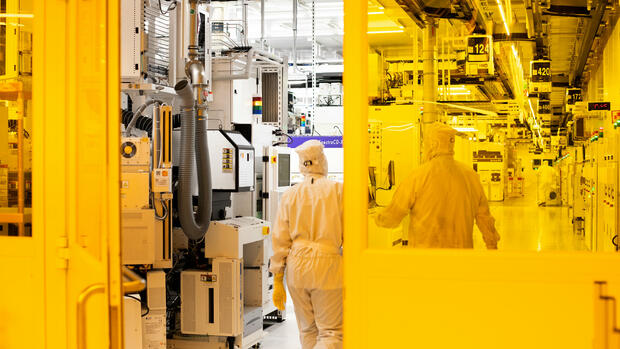Year-on-year, the economy grew a revised 1.0 percent in the period January through the end of March.
(Photo: Bloomberg/Getty Images)
Luxembourg In the euro zone, economic output surprisingly fell at the beginning of the year. In the first quarter, gross domestic product (GDP) fell by 0.1 percent compared to the previous quarter, according to a third estimate from the Eurostat statistics office in Luxembourg.
The currency area has thus slipped into a so-called technical recession. In a previous estimate, slight growth of 0.1 percent had been determined. Economists had expected stagnation.
In the fourth quarter of 2022, the euro economy also shrank by 0.1 percent. Here, too, the data were revised after stagnation had previously been determined.
When the economy shrinks for two quarters in a row, economists speak of a “technical recession.” However, this is still very mild. The data refer to the 20 countries of the euro zone. Croatia joined at the turn of the year.
Year-on-year, the economy grew a revised 1.0 percent in the period January through the end of March. In a previous estimate, growth of 1.3 percent had been determined. Economists had expected a revision to 1.2 percent.
Definition: What is a recession?
The economic development in the individual countries of the euro zone showed clear differences. The strongest growth was achieved in Luxembourg at 2.0 percent quarter-on-quarter and Portugal at 1.6 percent. In contrast, strong declines were registered in Ireland (minus 4.6 percent) and Lithuania (minus 2.1 percent). German GDP fell by 0.3 percent.
More: Why inflation is so low in Spain
